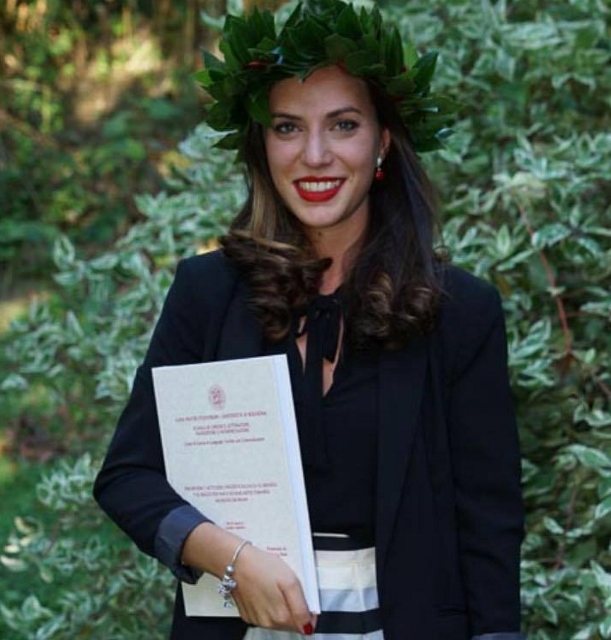
Congratulations to Dr. Valentina La Rosa on completing her Ph.D. dissertation at the University of Bologna in Italy on the "Linguistic Perception and Attitudes toward Spanish and English by Bilingual Cuban Speakers in Miami!" We were happy to host Valentina as a Visiting Scholar at CRI during the spring semester of 2017.
The results of her study confirm the rise of Miami English, a variant of English clearly influenced by the Cuban variant of Spanish, with its own linguistic features. The same occurs with the influence of English on the Spanish practiced by the inhabitants of Cuban origin. Data obtained through survey questionnaires confirm that because of the mutual influence between the two languages, it is very common for Cuban speakers to switch codes in the course of a conversation between bilingual speakers.
From a more sociological perspective, the research shows that generational changes and the momentary decrease in Cuban migration compared to the past lead to the displacement of Spanish by English, which is considered an indispensable language to live in the modern U.S. world. The data also show a trend to speak Spanish above all in the family, while English is used more often in more formal situations. In public places, such as restaurants and stores, both languages are spoken, depending on the speakers' origins. Besides, some adult members of the Cuban community, who have not entered into contact with English speakers, continue to speak Spanish.
On the other hand, from the viewpoint of linguistic perception, most interviewees consider that English is part of their identity, together with Spanish as their language of origin. Most of these adults actually regard themselves as bilingual and able to use both languages at the same level. On the contrary, the youngest respondents have different considerations and linguistic attitudes, as they generally prefer to speak English and regard this language as their true mother tongue, since they were born and raised in the United States.
Finally, the data suggest the degree of bilingualism and the persistence of Spanish as the dominant language in Miami, but in fact changes in speakers' attitudes reflect the creation of a situation of diglosia, insofar as younger members of the community who are entering adulthood begin to use both languages in different situations, one mostly in the family, and another in other social situations. Since language varies together with the attitudes of speakers who practice it, it seems fair to expect a probable change in the language spoken in Miami.